Best PreSchool in South Delhi, Greater Kailash
Early Childhood Education
The alumni of The Study have excelled in many fields as they started right!
We specialize in age-appropriate socio-emotional and cognitive skill building. Our team works together to provide a happy childhood for our babies.
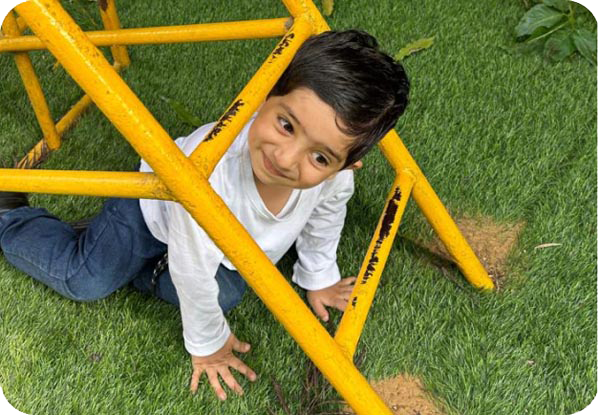
Our Motto – “Deeds Not Words”
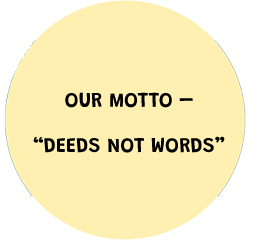
Tiny Tots
(12 Months to 24 Months)
- We value a school community where all students feel safe, have a sense of belonging and find success.
- Our Tiny Tots Program is for toddlers from 12-24 months. The aim is for the children to feel comfortable in their school, which we believe is their home away from home. Also for them to enjoy the company of friends their age. This helps toddlers prepare for the pre-schooler phase.
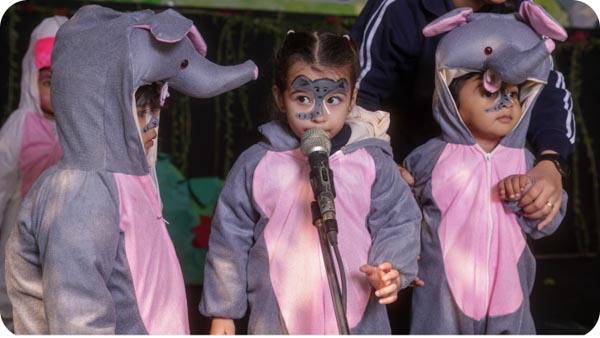
Children will learn by observing, copying and trying things out, through play and games. They learn from one another and the preschool teacher. All children learn at a different pace.
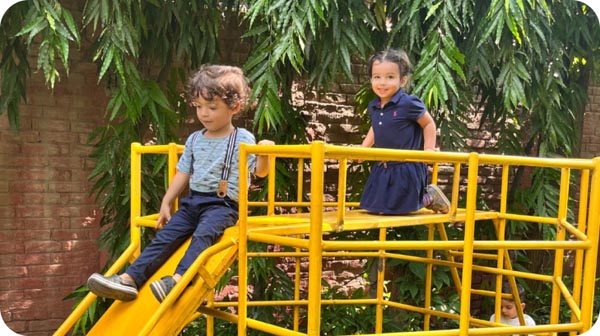
Gross motor skill development involves the large muscles in the arms, legs and torso. Gross motor activities are important everyday physical activities like walking, running, throwing, lifting, kicking etc.
Little ones
(2 – 3 Years)
- It is not just an opportunity to teach, it is an opportunity to educate children for life.
- Over 85% of a child’s cumulative brain development occurs prior to the age of 6, indicating the critical importance of appropriate care and stimulation of the brain in the early years in order to ensure healthy brain development and growth.
- Toddlers are encouraged to participate in activities which focus on the child’s primary areas of development such as:
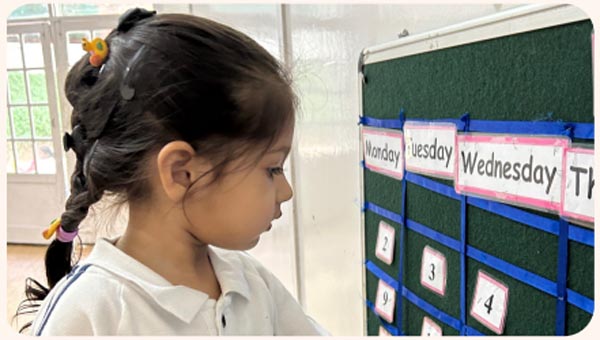
The ability to learn, acquire knowledge, imitate, respond to words, identify items and make sense of things, stems from cognitive development.
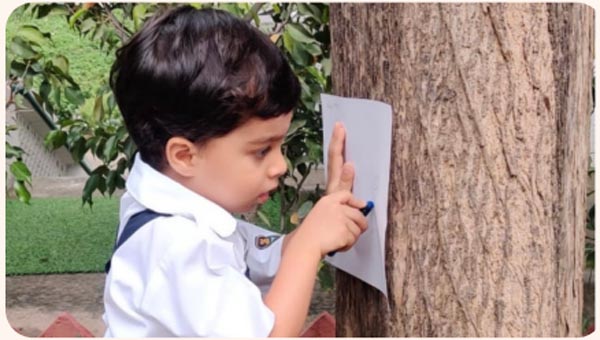
Fine motor skill involve the use of the smaller muscle of the hands, commonly in activities like using pencils (holding and using objects).
Young ones
(3 – 4 Years)
- In a safe and caring environment, children build a sense of themselves as individuals and as members of a larger social group.
- Life Skills like: Athletics & Aesthetics, Mental Well being, Nutrition and Maths & Language are all taken care of.
- Children are encouraged to make choices in their play and to work both individually and in small groups. They use natural open-ended sensory materials such as blocks, water and sand play, drawing, painting, collage, clay and small construction materials.
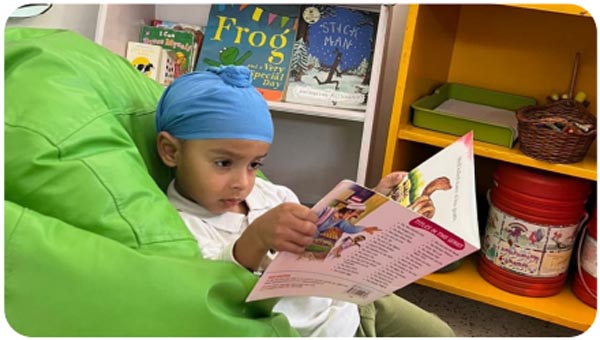
We believe that children thrive in an environment that is warm and rich with resources & opportunities. We value a school community where all students feel safe, have a sense of belonging and find success. We have monthly themes to embody the Froebel teaching method.
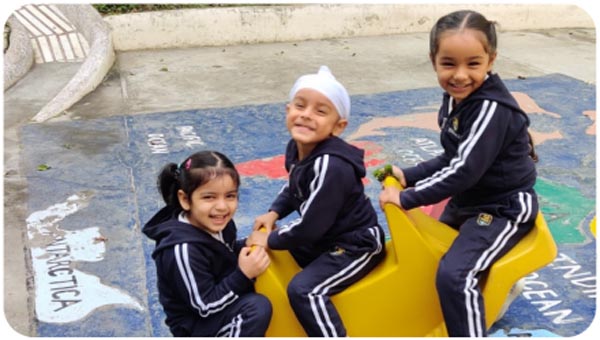
Expressing wants & needs, building conversations, being sensitive to the emotions of peers, forming friendships and playing with others, are the signs of Pre School Education skill development.
Kindergarten
(4 – 5 Years)
- This is the last stage of the Study Preschool Programme where children collaborate in small groups, play and explore methods to learn and teach decision making.
- Critical thinking and decision making are taught to make the child ready for prepatory school enrolment and the outside world.
- Teachers guide and nurture curiosity among children, enabling them to discover and learn about their environment themselves.
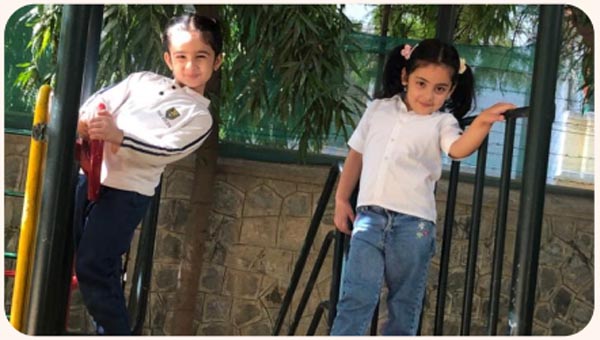
The start-up curriculum is to initiate some life skills development for school readiness as children hone their fine and general motor skills as well as social/emotional skills.

The process of decision-making involves identifying a problem or situation, gathering information, evaluating options, making a choice, and taking action.
It’s important that children begin developing their ability to make choices through problem-solving and reasoning from a young age. This can help them become more independent and can promote self-confidence as they improve their ability to make decisions and choices for themselves.
Our Approach
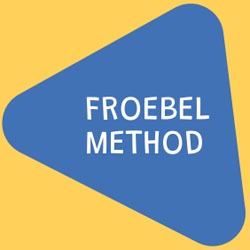
The Froebelian method is an educational approach that centers on play-based learning, creativity, and holistic child development. It encourages children to explore, create and discover in a nurturing environment. Teachers act as guides, and the emphasis is on social interaction, arts and hands-on activities. It values a child’s natural curiosity and aims to develop their physical, social, emotional, and cognitive skills. It’s an approach that fosters a love for learning while respecting the unique cultural context of India.



